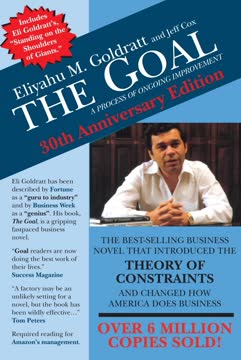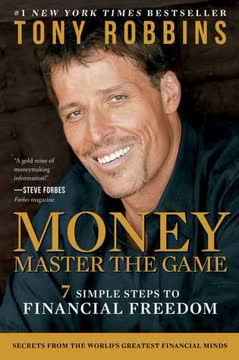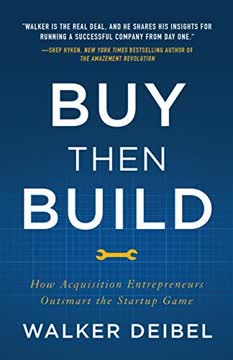Key Takeaways
1. Master the core problem-solving tools: Hypothesis, Issue Tree, Analysis, and Synthesis
Consultants use four tools to solve clients' biggest problems. You can use the exact same tools to tackle any type of case interview.
The foundation of case interviews. These four tools form the backbone of case interview success:
- Hypothesis: A preliminary answer or educated guess about the solution to the client's problem.
- Issue Tree: A logical structure to break down the problem and test the hypothesis.
- Analysis: The process of gathering and interpreting data to validate or disprove each branch of the issue tree.
- Synthesis: A concise summary of findings and recommendations.
Mastering these tools allows candidates to approach any case with confidence and structure. Practice applying them in various scenarios to develop fluency and adaptability.
2. Develop a hypothesis-driven approach to tackle case interviews
The purpose of a framework is not to complete the framework by the end of the interview. The purpose is to test a hypothesis.
Start with an educated guess. Begin each case by formulating an initial hypothesis, even if it's based on limited information. This approach:
- Provides direction for your analysis
- Demonstrates proactive thinking
- Allows for efficient problem-solving
As you gather more information, be prepared to refine or completely change your hypothesis. The key is to maintain a logical, hypothesis-driven approach throughout the case.
3. Use frameworks as templates, not rigid structures
Candidates who memorize frameworks without ever learning the critical-reasoning process behind them tend to struggle with the case interview, whereas candidates who grasp the logical critical-reasoning process tend to do well, even if they haven't memorized many frameworks.
Flexibility is key. While frameworks provide useful starting points, avoid becoming a "framework robot." Instead:
- Understand the underlying logic of each framework
- Customize frameworks to fit the specific case
- Develop the ability to create custom issue trees when needed
Remember that interviewers value critical thinking and adaptability over rote memorization of frameworks.
4. Excel in quantitative analysis and qualitative reasoning
The actual math isn't difficult, but you have to figure out which math to use and when to use it, so this is where candidates unaccustomed to doing math, especially under pressure, make mistakes.
Balance quantitative and qualitative skills. Successful case interviews require:
Quantitative skills:
- Quick mental math
- Data interpretation
- Identifying relevant metrics
Qualitative skills:
- Industry knowledge
- Business acumen
- Strategic thinking
Practice both types of analysis to ensure you can handle any case scenario. Develop strategies for breaking down complex problems into manageable components.
5. Cultivate strong communication and synthesis skills
I constantly emphasize and reemphasize just how important this type of communication is. I even suggest that candidates audio-record themselves communicating their synthesis, play it back, and analyze it. If even one word is off, rerecord the whole thing.
Communicate clearly and concisely. Effective communication is crucial in case interviews and consulting work. Key elements include:
- Structured responses (e.g., "The three key points are...")
- Clear, action-oriented recommendations
- Concise summaries of complex information
Practice synthesizing information and presenting it in a clear, compelling manner. This skill often separates top performers from average candidates.
6. Practice extensively to develop consistent case-solving habits
Of the candidates who received offers at the top three firms, 90 percent invested 50 to 100 hours in case interview preparation; approximately 10 percent invested around 10 hours.
Consistency through practice. Developing strong case-solving habits requires significant practice:
- Aim for 50-100 hours of dedicated preparation
- Conduct mock interviews with peers or mentors
- Review and learn from each practice session
Focus on developing consistent performance across various case types and formats. This consistency is what often leads to multiple job offers.
7. Adapt to various case interview formats while maintaining core principles
Regardless of the format of the case interview, you will use these core tools repeatedly.
Flexibility in format. Different firms use various case interview formats, including:
- Candidate-led cases
- Interviewer-led cases
- Written cases
- Group cases
- Presentation-only cases
While formats may differ, the core problem-solving principles remain the same. Practice adapting your approach to different formats while maintaining a strong focus on the fundamental tools and skills.
8. Demonstrate business acumen and client management skills
Clients value the ability to resolve long-standing debates of opinions, using estimates based on reasonable assumptions.
Think like a consultant. Show interviewers that you can:
- Make reasonable assumptions when faced with limited data
- Provide data-driven insights to support recommendations
- Navigate potentially sensitive client situations diplomatically
Develop your business acumen by staying informed about current industry trends and practicing estimation questions.
9. Leverage the MECE principle for effective problem structuring
The MECE principle can be applied to groups of related items, such as customers in different age brackets, and can also be used to group quantitative data.
Organize thoughts logically. MECE (Mutually Exclusive, Collectively Exhaustive) is a powerful principle for structuring problems:
- Mutually Exclusive: Categories don't overlap
- Collectively Exhaustive: All possibilities are covered
Apply MECE when:
- Creating issue trees
- Segmenting markets or customers
- Organizing data for analysis
Practice identifying MECE structures in everyday scenarios to develop this skill for case interviews.
10. Prepare for written cases and group interviews strategically
To prepare for the written case, you need to assess how strong your math, logic, and data interpretation skills are.
Diverse preparation. As firms experiment with different interview formats, be ready for:
Written cases:
- Practice data interpretation
- Improve speed and accuracy in calculations
- Develop slide-making skills
Group cases:
- Collaborate effectively with other candidates
- Balance assertiveness and teamwork
- Practice diplomatic disagreement
Tailor your preparation to your strengths and weaknesses, focusing on areas that need improvement while maintaining your core problem-solving skills.
Last updated:
FAQ
What's Case Interview Secrets about?
- Focus on Case Interviews: Case Interview Secrets by Victor Cheng is a comprehensive guide to mastering case interviews, a crucial part of the consulting recruitment process.
- Author's Experience: Written by a former McKinsey interviewer, it offers insights from both sides of the interview table, providing a unique perspective.
- Structured Approach: The book emphasizes a structured approach to problem-solving, teaching candidates to think like consultants rather than just memorizing frameworks.
Why should I read Case Interview Secrets?
- Proven Success: Many readers have secured job offers from top firms like McKinsey, Bain, and BCG by applying the book's techniques.
- Practical Techniques: It provides practical advice, frameworks, and tools that can be directly applied to case interviews.
- Comprehensive Coverage: The book covers various types of case interviews, evaluation tools, and the skills needed to succeed.
What are the key takeaways of Case Interview Secrets?
- Hypothesis-Driven Approach: Start with a hypothesis to guide the analysis, which helps in structuring the case effectively.
- Issue Trees and Frameworks: Use issue trees to logically break down problems and test hypotheses, crucial for case interviews.
- Communication Skills: Clear and concise communication is vital, especially in synthesizing findings and presenting recommendations.
What is the Profitability Framework in Case Interview Secrets?
- Definition: A tool to analyze a company's profits by breaking them down into revenues and costs.
- Components: Segments revenues into unit price and number of units sold, while costs are divided into fixed and variable costs.
- Application: Helps identify whether a profit problem is revenue-driven or cost-driven, guiding the analysis.
How does the Business Situation Framework work in Case Interview Secrets?
- Purpose: Used to understand qualitative aspects of a business, including customer needs and competitive landscape.
- Key Components: Consists of four main areas: Customer, Product, Company, and Competition, each prompting specific questions.
- Flexibility: Candidates can customize their approach based on the hypothesis, using the framework as a starting point.
What is the importance of synthesis in case interviews according to Case Interview Secrets?
- Definition: Synthesis is summarizing findings and presenting a clear, actionable recommendation based on the analysis.
- Structure: Use a top-down communication structure, starting with the recommendation followed by supporting points.
- Continuous Practice: Mastering synthesis is crucial for standing out, demonstrating both analytical and communication skills.
How should I approach estimation questions in case interviews as per Case Interview Secrets?
- Simplifying Assumptions: Make reasonable assumptions to simplify complex problems for quicker estimations.
- Logical Structure: Break down the estimation into manageable parts, ensuring clarity in thought and communication.
- Practice: Regular practice with estimation questions improves speed and accuracy, critical in a timed setting.
What common mistakes should I avoid in case interviews according to Case Interview Secrets?
- Lack of Structure: Failing to present a clear issue tree or framework can lead to confusion and lack of direction.
- Overanalyzing: Spending too much time on one branch without reaching a conclusion can waste valuable time.
- Ignoring Communication: Not articulating thoughts clearly or failing to synthesize findings can hinder evaluation.
What is the Five-Minute Hypothesis Rule in Case Interview Secrets?
- Definition: Suggests stating a hypothesis within the first five minutes to avoid forgetting it.
- Timing: Balances asking clarifying questions with the need to establish a hypothesis early.
- Importance: Helps guide the analysis and keeps the candidate focused on testing the hypothesis.
How does Victor Cheng suggest handling math in case interviews?
- Write Down Formulas: Write down formulas and calculations step-by-step to avoid confusion and ensure accuracy.
- Break Down Problems: Break down complex problems into simpler components to manage calculations and reduce errors.
- Practice Math Skills: Extensive practice is crucial, as accuracy in calculations is critical for success.
What is the significance of practicing with a role model as suggested in Case Interview Secrets?
- Learning from Experience: Observing effective techniques and strategies enhances understanding of the process.
- Identifying Subtle Nuances: Pick up on subtle nuances in communication and problem-solving not apparent through self-study.
- Building Confidence: Emulating a successful role model helps build confidence in one's abilities and approach.
What are the best quotes from Case Interview Secrets and what do they mean?
- Framework Purpose: "The purpose of a framework is not to complete the framework by the end of the interview." It emphasizes testing a hypothesis and guiding analysis, not just filling out a checklist.
- Practice Importance: "Practice really does make perfect." Consistent effort leads to improved performance in case interviews.
- Focus on Relevance: "You’re not supposed to—nor do you have the time to—ask every question in every area." Focus on the most relevant questions to test the hypothesis effectively.
Review Summary
Case Interview Secrets receives mixed reviews. Many readers find it helpful for understanding the consulting interview process and problem-solving frameworks. However, some criticize the author's self-promotion and repetitive marketing of his website and courses. Positive aspects include insights into consultant thinking and interview preparation, while negatives include the author's perceived arrogance and lack of conciseness. Overall, readers recommend it as a starting point for case interview preparation but suggest supplementing with additional resources and practice.
Similar Books










Download PDF
Download EPUB
.epub digital book format is ideal for reading ebooks on phones, tablets, and e-readers.




